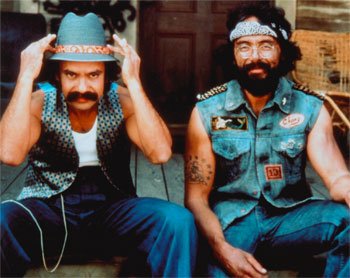I can’t wait until Sorenne goes to pre-school, only to be greeted by a teacher giggling, muttering to herself, “Dave’s not here.”
 That’s what happened in April, 2009, when the Los Angeles Police Department (LAPD) notified officials from the Los Angeles County Department of Public Health (DPH) in California about a group of preschool teachers with nausea, dizziness, headache, and numbness and tingling of fingertips after consumption of brownies purchased 3 days before from a sidewalk vendor.
That’s what happened in April, 2009, when the Los Angeles Police Department (LAPD) notified officials from the Los Angeles County Department of Public Health (DPH) in California about a group of preschool teachers with nausea, dizziness, headache, and numbness and tingling of fingertips after consumption of brownies purchased 3 days before from a sidewalk vendor.
As reported in today’s U.S. Centers for Disease Control weekly update, “the findings also underscore the need to consider marijuana as a potential contaminant during foodborne illness investigations and the importance of identifying drug metabolites by testing of clinical specimens soon after symptom onset.
On the morning of April 7, 2009, a preschool teacher put brownies, which she had purchased on April 5, on a table in a break room to share with staff. The day before, she also had given two brownies to her adult son at home. Five preschool teachers (not including the teacher who had purchased the brownies) and the teacher’s adult son were the only persons who ate the brownies. Each person ate only one brownie. At approximately 1:30 p.m., the preschool director and the administrator noticed that one of the teachers suddenly looked drowsy and was complaining of drowsiness, ataxia, dizziness, shortness of breath, and numbness and tingling of the face, forehead, arms, and hands. When the director and administrator learned that the teacher who had shared the brownies had purchased them from a sidewalk vendor for a church fundraiser, they suspected the affected teacher’s drowsiness was associated with her ingestion of the brownie 30 minutes before onset of symptoms. The teacher did not seek medical care.
The brownies were sold as single, unlabeled units, individually wrapped in plastic wrap, costing $1.50 each. The preschool director contacted the head pastor of the church, who reported that the church had not held a fundraiser, and the pastor subsequently notified LAPD to investigate. After interviewing persons at the church and the preschool, LAPD suspected foodborne illness and contacted DPH on April 8.

.jpg)